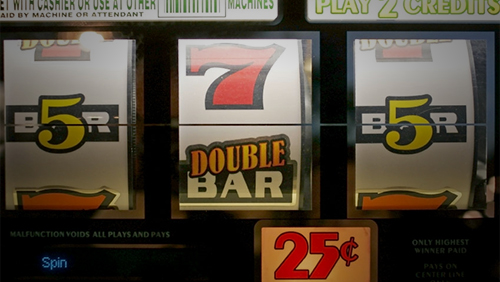British Gambling expert Luke Clark has been appointed as the first director of the British Colombia Center for Gambling Research at the University of British Colombia.
Luke Clark has dedicated his life to the pursuit of understanding how the mind sparks into action when a gambling impulse is activated, and he has been rewarded for his dedication after being appointed as the first director of British Columbia’s Center for Gambling Research.
 Clark, who is a university senior lecturer at the Behavioral and Clinical Neuroscience Institute, as well as a Director of Studies in Natural Sciences (Psychology), Trinity Hall, Cambridge in the U.K, takes up his appointment in July.
Clark, who is a university senior lecturer at the Behavioral and Clinical Neuroscience Institute, as well as a Director of Studies in Natural Sciences (Psychology), Trinity Hall, Cambridge in the U.K, takes up his appointment in July.
The center was established back in February after $2 million was donated to the project by the British Columbia Lottery Corporation (BCLC), and the Government of B.C, in a bid to advance the province’s understanding of gambling psychology, and help deal with the problems that arise from gambling habits that have gotten out of control.
At the time of the announcement of the new center, a media release from the University of British Colombia stated: “UBC will use the funds to recruit a global expert in the field of gambling research to lead the Centre, which will reside in the university’s Department of Psychology. This leading scholar will expand and leverage existing gambling research, which explores the relationship between rewards and human behavior, gambling’s influence on our brains and risk-based decision-making.”
That man is Clark and he is indeed a global expert after working closely with the UK’s National Problem Gambling Clinic since 2010, as well as being the author of many papers published on the studies of Gambling Near Misses.
One of Clark’s aims is to create a future where people with former gambling problems use their experience to help change the lives of gamblers in the present and future.
“For the first time in British Columbia, I believe, we’ll be recruiting people with gambling problems to come into the lab,” Clark said.
“We’ll be looking at psychological factors like impulsivity levels, risk taking, self control. We’ll also be looking at biological markers like neurotransmitter function, brain imagery, responses, psychological arousal, and what happens in the body during gambling sessions.”
The director believes ‘pathological gambling’ falls under the realms of mental illness, and the major U.S psychiatry manual has recently reclassified it as such.
“This is quite a major change in how we think of addiction,” Clark said. “When we start thinking of behaviors as being addictive, too, it entails quite a change in how we think of that. It’s one of the many reasons why this is an exciting field at the moment.”
Funding from the lottery and government will take them past fives years and after that Clark aims for the university to achieve full academic independence.